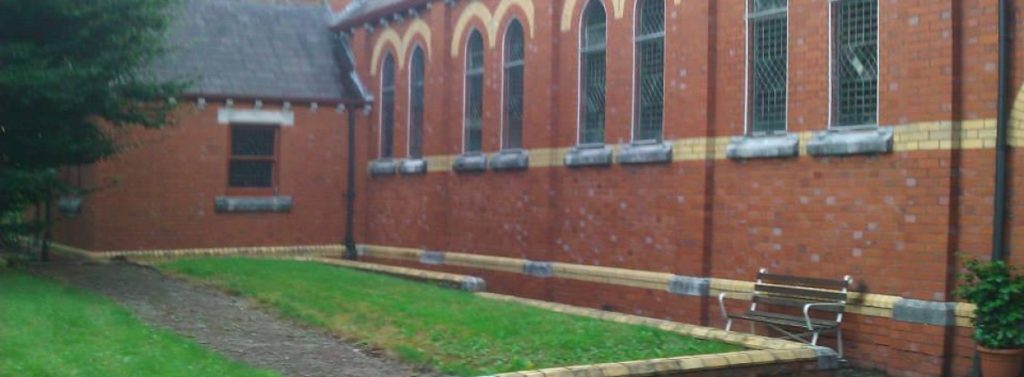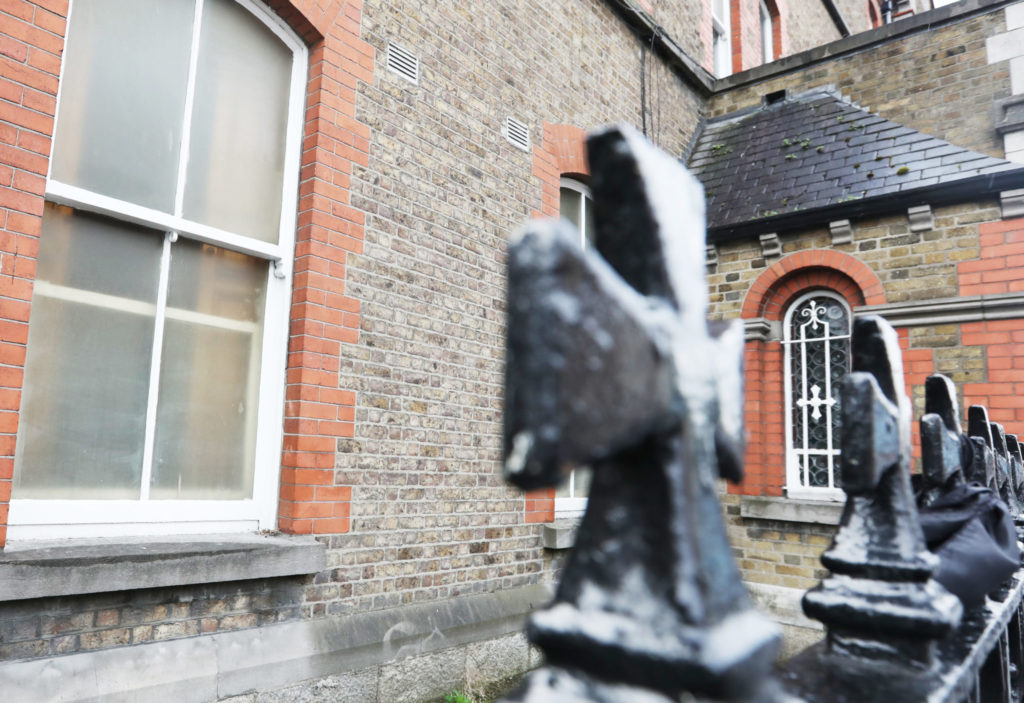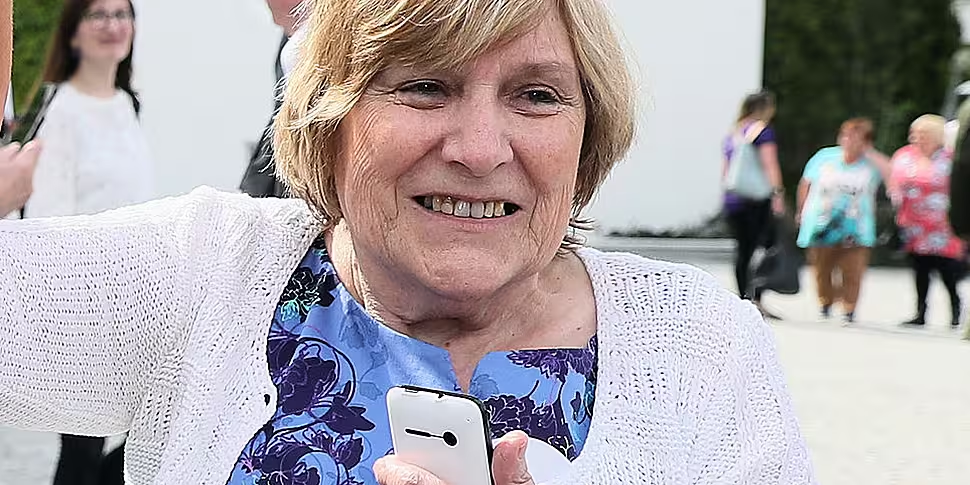A Magdalene survivor, who has described her upbringing as being "like a horror story", is taking her case to the United Nations.
The UN Committee Against Torture has begun an investigation into the State's treatment of 70-year-old Elizabeth Coppin.
The case could have implications for the State's approach to historical abuse.
It is a landmark case, being the first before the committee from a Magdalene survivor.
Mrs Coppin was born in Killarney, Co Kerry in 1949 to an unmarried woman.
She says she then went to an industrial school until just before she was 15-years-old.
She told Pat Kenny she was then "trafficked" from there by two nuns "with the help of the Education Department in the Irish government" to the first laundry.
"I was there for two years and whilst there I was treated appallingly - put into what they call the padded cell.
"People will know, those who were in there in Peacock Lane in Cork.
"Then I ran away and I was brought back by the Irish Society for Prevention of Cruelty to Children and put into another Magdalene laundry, because I was under age.
"There my name was changed to a man's name, I was there for five months, and then I was transferred to Waterford Magdalene laundry".
Mrs Coppin says she was born into a county home, which she says saw pregnant woman brought in to do all the work.
"Before Ireland became a Free State, they were the workhouses.
"They were all over Ireland, people from poverty and everywhere else were there - and the outcasts in our society were left in there in 1920 when Ireland became a Free State.
"So in their wisdom, it was the Irish government who changed the names from 'workhouses' to 'county homes'.
"So from that moment on the Irish government took full charge of them.
"They decided then to bring pregnant woman in to run the county homes... right up until the young girls or woman had their babies - and then they had to stay in there until a relative would come later and pay £100 to take them out."
 The former Magdalene laundry at Peacock Lane in Cork | Image: Justice for Magdalenes Research
The former Magdalene laundry at Peacock Lane in Cork | Image: Justice for Magdalenes ResearchShe says her grandfather came and paid the £100 in 1949 to take her "out of the clutches of the State".
Mrs Coppin says she was then committed to an industrial school in Tralee, which she said was like "going from bad to worse".
"It's just like a horror story, what I endured".
"Six weeks into my 13th birthday I was deprived of an education - I never went or saw school again.
"A school? You're kidding yourself".
"They worked with the Catholic church - the Irish government - and they're in denial about it.
"And they abused the children so badly - and these are Irish citizens - these are young girls and boys who had to take the abuse, keep quiet about it and they're still trying to do the same to these boys and girls who are now men and woman, fighting for justice".
She tried to take her own life at one point: "I just couldn't cope with it - the beatings, the starvation.
"I realised later I was suffering from various illnesses but you wouldn't believe I was half-starved and I was.
"I'd come back from school about 3 o'clock every Friday and I'd be sent upstairs till Monday morning... nothing to eat during Saturday and Sunday - and that's the gospel truth.
"She didn't do it to everyone, but she definitely did it to me", Mrs Coppin says.
She says in her room at Peacock Lane, there was a single bed, a window with bars on it, a cabinet with a pot and a washing bowl and jug.
"And we'd fill that jug up at nighttime if we wanted to use it for washing or whatever.
"We had to use those pots - and in the morning the stench - we couldn't get out.
"The doors were always locked at nighttime every single night.
"We were locked in those cells every single night that we lived there, and some women lived there for 60-plus years.
"And you could never get out if you were agony at nighttime, no nuns came over - nothing.
"All the blots were locked from the outside".
She ran away from Peacock Lane "after I was dragged into the padded cell... there was no bed in there, no mattress.
"I had bread and water to drink and a pot again - they loved us using pots".
"It was while I was in there I was at my lowest - I mean, talk about mental health issues, which was uncommon to hear of in those days.
"And I knew that I had to do something if I got out of there because I would die in there like a lot of the women who were dying around me, working daily and have died and buried in a mass grave".
"It was two workmen that helped me to runaway - I've forgotten your names, whoever you are: thank you for helping me".
 The Magdalene Laundry on Sean McDermott Street in Dublin city centre is seen in 2018 | Image: Leah Farrell/RollingNews.ie
The Magdalene Laundry on Sean McDermott Street in Dublin city centre is seen in 2018 | Image: Leah Farrell/RollingNews.ieThe Magdalene Laundry located at Peacock Lane in Cork was established in 1809 by Nicholas Therry.
The Religious Sisters of Charity took over the institution in 1845.
To date, the Justice for Magdalenes Research group has recorded the names of 100 women and girls who died at the Peacock Lane Magdalene Laundry.
There are 72 names inscribed on the headstone at St Finbarr's Cemetery in Cork, while there are 28 names inscribed on headstones at St Catherine's Cemetery in Kilcully, Cork.
She says she is hoping the UN will bring the Irish State to account.
"No matter what they say to the Irish government, the Irish government are still snigering in corners and they're faceless people behind them, advising them... 'we'll get away with this, they're only Magdalene women, they're uneducated'.
"And I want it all to come out how they've treated us and still are treating us".
She explains: "When we were signing for the Magdalene redress... I phoned up the Justice Department and said 'I'm not happy about taking this because you're not addressing the violation of my human rights.
"And I was actually told by a civil servant: "Elizabeth we're not doing that - this money is only for the time spent in the laundry".









